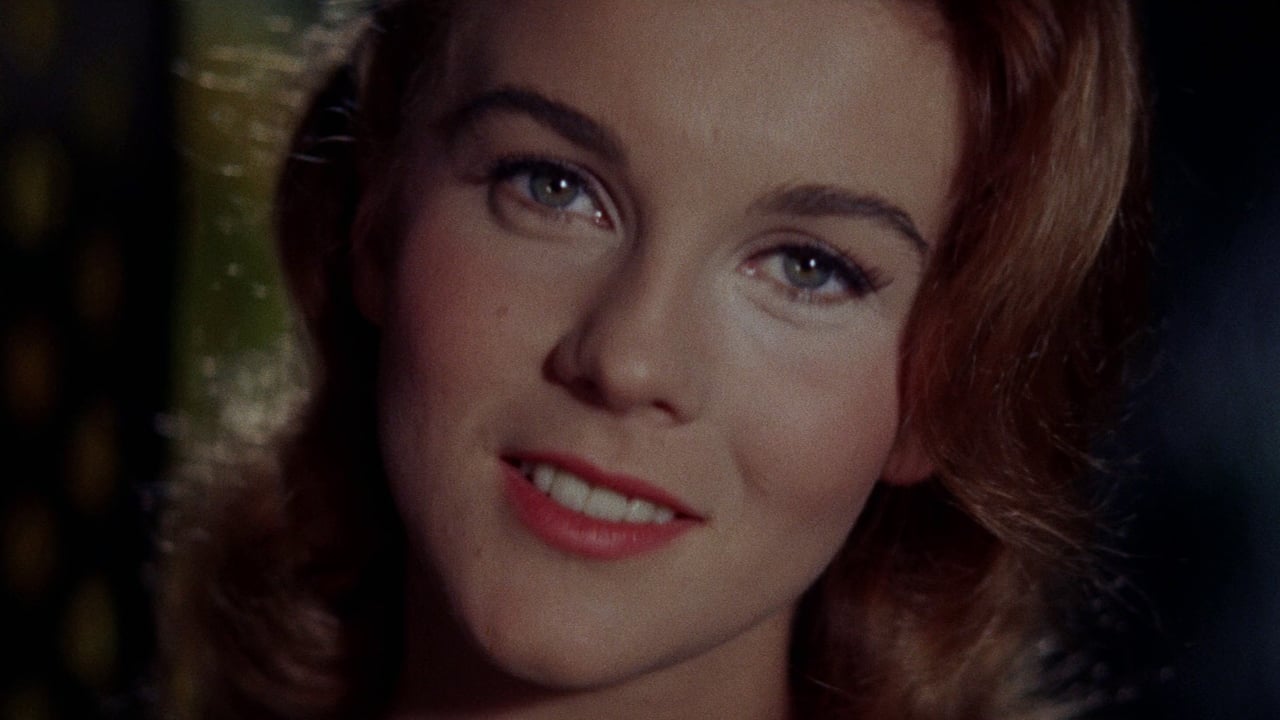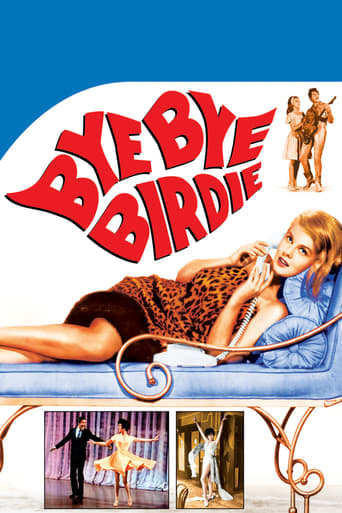

OK, in the spirit of full disclosure, I am an old guy. In fact this movie was being filmed during my senior year in high school, and released near the time I graduated. But somehow I had never seen it, until now. It has great memories for a number of reasons. First, as a teen I was infatuated with Janet Leigh. She was so pretty and with a nice figure, to me it couldn't get any better. I have seen her in a number of dramatic roles, including Psycho, but never in a comedic role, as here, and she does great.Second, as I went into young adulthood I discovered Ann-Margaret, and to me she was about as nice and beautiful as they get. She is only 4 years older than I am, she was 21 during filming of this movie and she lights up the screen in every scene she is in. Plus a darned good singer.And third, Bobby Rydell. His songs were very popular during the 1960s and seeing him play the role of Ann-Margaret's character was total fun and nostalgic. I can still hear him singing "Dream Lover."The title character of this movie is Jesse Pearson as singer Conrad Birdie, mostly a parody of Elvis Presley, drafted to go into the military, and young girls swoon when he sings. But he also sounded a lot like Bobby Darin in some songs.But the story is just an excuse to sing a few songs and to showcase the talents of the main cast, which also included the likes of Paul Lynde and Ed Sullivan playing himself. The story includes having Kim (Ann- Margaret) and Hugo (Bobby Rydell) realize their love for each other, as well as Albert (Van Dyke) and his secretary Rosie (Leigh).Just a fun, silly movie from the 1960s, with fun, silly songs.
... View MoreBYE BYE BIRDIE belongs in its own time warp of 1963 when the Ed Sullivan Show on Sunday eves was the number one TV show in America. In this same time warp are the costumes, teen talk (on land phones before cellphones), and all sorts of shenanigans that have a very musty '60s flavor. And yet, it's a cheerful and nostalgic look at a bygone era, largely due to the very competent cast which makes everything look easy.Especially easy on the eyes is Ann-Margret in one of her best early roles as the girl in love with Conrad Birdie (Jesse Pearson) and chosen to sing "One Last Kiss" to the super rock star for the Ed Sullivan show, before Birdie's induction into the service. She more than makes up for the shortcomings of Pearson who is not ideally cast as the title character with the Elvis Presley hips.Maureen Stapleton is sometimes hard to take as Dick Van Dyke's overly possessive mother. It's certainly not one of my favorite Stapleton roles but she does what she has to with the material. On the other hand, Paul Lynde is extremely well cast as the father of a household he's barely able to cope with, even if his character does become a bit obnoxious by the time he reaches the Ed Sullivan Show.But whatever shortcomings the film has, Janet Leigh is certainly not one of them. Who could suppose she would play Rosie with such a natural flair for singing and dancing? And thanks to Onna White's super choreography, her big dance number is a joy to behold.Summing up: Easy to take and in some ways, easy to forget--but it's worth a look as far as musicals go.
... View MoreSo many people seem to know actress Janet Leigh from her role in "Psycho" (1960).How unfortunate! Two years later, she got to leave her comfort zone and perform as Rosie DeLeon in "Bye, Bye Birdie." It has been said this movie is an Ann-Margret movie, and she does indeed give a fine performance, as she would in years to come.Janet Leigh is no Chita Rivera. For that matter, Ms. Rivera is no Ms. Leigh. And the 1960 stage show is not the 1963 film. You take the performers and the productions on their own terms. They all work well. Janet Leigh was never lovelier than she was here!!!! She may not be the best singer, but she was fantastic, getting out of a "comfort zone" in terms of performing, and giving it her own all in this film!! I can understand the disappointment both Dick Van Dyke and Paul Lynde felt with this production. I imagine they deserved more time, given what they contributed. But they, and the other supporting cast members do well.From my perspective, I first saw this in spring 1974 in junior high, and the movie looked so hokey, given its Kennedy administration background. Watergate loomed very, very large, with its cynicism, and I could not appreciate this as a 14-year-old. But as time goes by, I have gotten to love this movie very much.And since I grew up in the Southern Tier of New York, the song "One Last Kiss" has a special meaning. When Gary Lewis and the Playboys performed this song on "The Ed Sullivan Show" on 4 December 1966, before Mr. Lewis went to the Army, the girl who got the kiss was from Endicott, just 5 miles from where I was writing this!! Whatever the case, this movie remains as enjoyable today as it was when it was released nearly 50 years ago!!
... View MoreAlthough George Sidney directed some classic MGM musicals, his adaptation of the Tony-winning Broadway hit, "Bye Bye Birdie" for Columbia is not often mentioned. The oversight is unfair, because "Birdie" is a lively, tuneful, and often inventive film musical. Where "Grease" strove to create nostalgia by invoking the 1950's and 60's, "Birdie" was filmed in 1963 and is the real thing. Although the music is generally more Broadway than late-50's rock, the film includes a genuine 1950's teen heartthrob in Bobby Rydell, and an authentic icon of the period in Ed Sullivan. Both Rydell and Sullivan were still popular when the film was made and, unlike the bygone stars in "Grease," were not dragged from the attic for walk-ons.Conrad Birdie, a thinly disguised Elvis, has been drafted. Aspiring songwriter, Dick Van Dyke, and his secretary, Janet Leigh in an awful black wig, concoct a plan to have Birdie bestow a goodbye kiss on one lucky girl and sing a song to be written by Van Dyke. All of this to take place on the "Ed Sullivan Show." Ann -Margret from Sweetwater, Ohio, is the lucky girl.Although Ann-Margret is a bit hot to be the steady of Bobby Rydell, she is dynamite on the dance floor and smolders during her numbers. Obviously, the director and producer fell in love with her, and she upstages everyone, including two members of the original Broadway cast, Van Dyke and Paul Lynde. However, Lynde does hold his own as Ann-Margret's father, and he has an amusing musical number in "Kids." Also funny is Maureen Stapleton, who stomps around in sensible shoes and a fur coat as Van Dyke's mother. To Leigh's frustration, Stapleton does everything to keep her "baby" from falling into marriage and out of her control."Bye Bye Birdie" has a number of good songs, some lively choreography, and clever effects that distinguish it from the more traditional musicals like "Show Boat" that Sidney directed for MGM. Although Van Dyke has the central role, he is not a standout. Perhaps the part of Albert Peterson was meant to be a bland foil for the two women in his life, who spar for control. Although Leigh is miscast as Rosie DeLeon, a Latina part that belongs to Chita Rivera, she does well despite the wig. However, Ann-Margret opens the film, closes the film, and, in between, sizzles and dazzles in a star-making role.
... View More